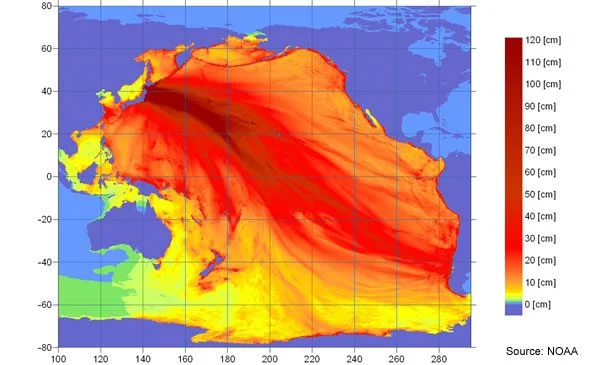
A massive 8.9-magnitude earthquake struck off the coast of Japan on 11 March causing a major tsunami in the Pacific. Oxfam are currently monitoring the unfolding disaster. We have many years of experience in dealing with disasters like this, and we have teams around the world that are ready to respond if needed. We’ll continue to post updates here as they come in – you can also follow Chee Chee Leung, Oxfam’s emergencies media coordinator on Twitter.

The situation
A severe earthquake that struck the north-east coast of Japan has caused a major tsunami. Serious damage was caused in northern Japan, and the tsunami then moved southwards across the Pacific ocean.
Oxfam runs long-term development programs across the Pacific and East Asia, in Fiji, Solomon Islands, Vanuatu, Indonesia, Timor-Leste, Papua New Guinea and The Philippines.
Many of these countries were initially on high alert, but reports from our staff and partners, indicate there has been limited damage. However, we remain concerned and are on standby to respond should it be necessary.
Oxfam Japan stands ready to assist the Japanese government and local authorities if needed. As the Japanese government has a very strong capacity to respond to emergencies, Oxfam will not launch a major humanitarian response. Instead, Oxfam Japan and its partners will look to assist those on the margins of society who may otherwise have difficulty accessing emergency relief.
Updates
Tuesday 15 March
UN team in Fiji says no reported tsunami damage in Niue, Cook Islands, Samoa, Tokalau, Fiji, Tonga, Kiribati, Marshall Islands or Vanuatu.
Sunday 13 March
11.00am: Morning checks with Oxfam Australia staff and partners in Vanuatu, Solomon Islands, Samoa, Tonga and Papua New Guinea indicate no significant damage to report.
Saturday 12 March
7.40am: We are still unsure as to whether the small island states such as Samoa, Vanuatu and the Solomon Islands have been impacted by the tsunami.
It is early morning so is just starting to get light in these areas.
In Vanuatu the country manager reports that they have been given the all clear and are starting to return to their homes from higher ground. He described seeing people with their bedding in hand waiting for buses or getting in cars to return home. All was calm. At this stage he has no information as to whether there has been any damage.
The country manager in the Solomon Islands has just done a brief drive around his immediate area in Honiara and reports that whilst it is quiet, with few people around, there are no obvious signs of damage.
Initial reports from the field in PNG and Tonga suggest that damage has been limited in these areas but this will need to be confirmed by staff when the sun rises and it is safe to assess the affected areas.
5:24pm: ABC News says there are reports of minor flooding in PNG from the tsunami. Oxfam is providing tarps, food and water to a hospital in PNG that was flooded by the tsunami wave. Read the full media release
6.36pm: In the Solomon Islands we’ve received reports that the tsunami caused water to come 50m inland. In Tonga, an Oxfam representative has told us that the tsunami did not cause big waves, just big tides.
8.00pm: Reports from a contact in Tuvalu says no damage to main island and it’s believed other islands are OK.
Friday 11 March
7.36pm: Our staff in offices in the countries under threat have been alerted, and are preparing to respond as required.
How you can help
We have not yet opened an appeal for the Japanese earthquake.
However, by donating to our International Crisis Fund, you can help us respond to future emergencies like this as they happen.